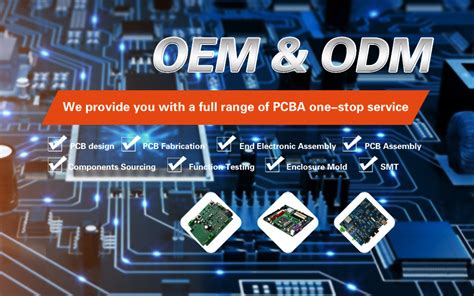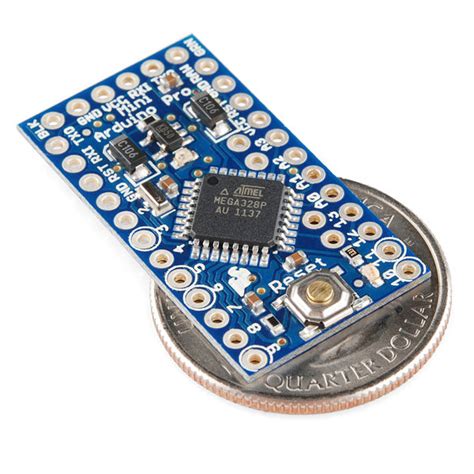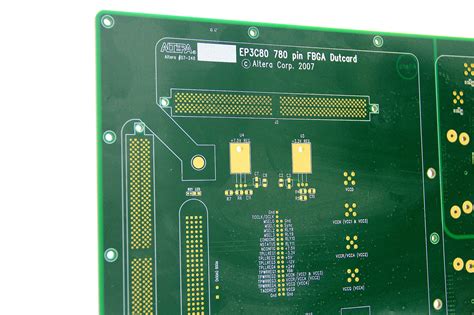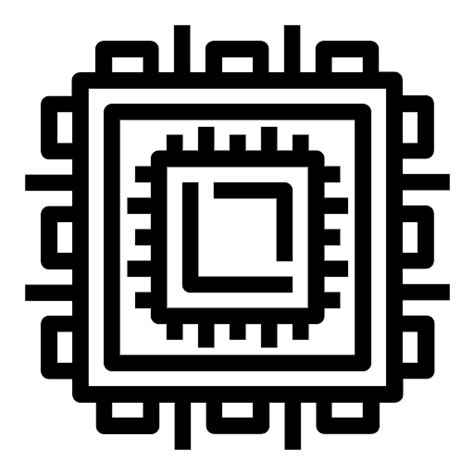Innovative PCB Assembly Leaders: Global Industry Pioneers

Key Takeaways
The global PCB assembly landscape is defined by companies that combine cutting-edge technologies with precision manufacturing to deliver scalable, high-quality solutions. Leading firms excel in PCBA (Printed Circuit Board Assembly) by integrating advanced tools like automated optical inspection (AOI), 3D printing for rapid prototyping, and AI-driven process optimization. These innovations ensure faster turnaround times, reduced errors, and enhanced reliability in high-volume production. Equally critical is their mastery of global supply chains, enabling seamless coordination across design, component sourcing, and logistics to meet diverse regional demands. Sustainability remains a cornerstone, with pioneers adopting eco-friendly materials, lead-free soldering, and energy-efficient manufacturing processes to minimize environmental impact. Case studies highlight how top-tier PCB assembly providers have transformed industries—from automotive to medical devices—by delivering compact, high-performance boards tailored to evolving technological needs. Looking ahead, the convergence of IoT connectivity, AI-powered analytics, and robotic automation is set to redefine PCBA standards, emphasizing agility and customization. Rigorous quality assurance protocols, including in-circuit testing (ICT) and functional testing, ensure compliance with international certifications, reinforcing trust in mission-critical applications. Collaborative partnerships between PCB assembly leaders and tech innovators further accelerate breakthroughs, solidifying their role as indispensable enablers of modern electronics.

Introduction to Global PCB Assembly Innovation Leaders
The global electronics landscape is being reshaped by PCB assembly innovators who combine cutting-edge technology with unmatched precision to deliver advanced solutions. These industry leaders, often referred to as PCBA (Printed Circuit Board Assembly) specialists, are driving progress through automation, miniaturization, and smart manufacturing practices. By integrating technologies like AI-driven inspection systems and IoT-enabled production lines, they ensure high-quality outputs for industries ranging from aerospace to consumer electronics.
A hallmark of these companies is their ability to balance high-volume manufacturing with customization. For instance, firms such as Foxconn, Jabil, and Sanmina leverage modular production frameworks to cater to diverse client needs while maintaining rigorous quality assurance standards. The table below highlights key attributes of leading PCB assembly providers:
| Company | Specialization | Key Technology | Global Footprint |
|---|---|---|---|
| Foxconn | High-Density Interconnect | Robotic Assembly Systems | 20+ Countries |
| Jabil | Flexible PCB Solutions | AI-Powered Quality Control | 30+ Manufacturing Hubs |
| Sanmina | Aerospace & Defense PCBA | Advanced Thermal Management | Americas, Asia, Europe |
"Innovation in PCBA isn’t just about speed—it’s about creating resilient supply chains that adapt to dynamic market demands." — Industry Expert
Sustainability is another critical focus, with pioneers adopting eco-friendly materials and energy-efficient processes. For example, companies are increasingly using halogen-free substrates and implementing closed-loop recycling systems to minimize waste. This shift not only aligns with global environmental regulations but also meets the growing demand for green electronics.
Collaboration remains central to progress. Strategic partnerships between PCB assembly providers and semiconductor giants like Intel or Qualcomm accelerate the development of next-gen solutions, such as 5G-enabled modules and edge-computing devices. These alliances ensure that innovation is both scalable and aligned with emerging trends like advanced automation and smart factory integration.
By mastering global supply chain dynamics and investing in R&D, these leaders continue to set benchmarks for reliability, efficiency, and technological advancement in the PCBA sector.
Cutting-Edge Technologies Driving PCB Manufacturing Excellence
The global leaders in PCB assembly are redefining manufacturing excellence through the integration of next-generation technologies that enhance precision, efficiency, and scalability. Advanced PCBA processes now leverage artificial intelligence (AI) and machine learning (ML) to optimize design validation, component placement, and defect detection. For instance, AI-driven algorithms analyze vast datasets to predict potential failures in circuit layouts, enabling preemptive corrections and reducing time-to-market. Similarly, IoT-enabled systems monitor production lines in real time, ensuring seamless communication between machinery and minimizing downtime.
Innovations like 3D printing and laser direct imaging (LDI) have revolutionized prototyping and high-density interconnect (HDI) board fabrication, allowing for intricate designs that meet the demands of modern electronics. Companies specializing in PCB assembly are also adopting automated optical inspection (AOI) and X-ray inspection systems to ensure micron-level accuracy, critical for applications in aerospace, medical devices, and automotive industries. Additionally, the use of environmentally friendly materials—such as lead-free solders and halogen-free substrates—aligns with global sustainability goals without compromising performance.
The rise of modular manufacturing platforms has further streamlined PCBA workflows, enabling rapid reconfiguration for diverse product lines. These platforms integrate robotic process automation (RPA) to handle repetitive tasks, freeing engineers to focus on innovation. Moreover, digital twin technology simulates entire production cycles, identifying bottlenecks and optimizing resource allocation before physical execution.
As the industry evolves, collaboration with semiconductor innovators and material scientists ensures that PCB assembly remains at the forefront of technological advancement. By merging cutting-edge tools with agile methodologies, these pioneers are not only enhancing manufacturing precision but also setting new benchmarks for reliability and scalability in a hyper-competitive global market.

Global Expertise and Supply Chain Mastery in PCB Assembly
Leading PCB assembly companies distinguish themselves through unparalleled global expertise and sophisticated supply chain management, enabling seamless production across continents. These industry pioneers leverage extensive networks of manufacturing hubs, logistics partners, and material suppliers to ensure rapid scalability and reliability, even for high-volume PCBA projects. By integrating advanced demand forecasting tools and real-time data analytics, they optimize inventory levels, minimize lead times, and mitigate risks associated with geopolitical or market fluctuations. For instance, firms operating in North America, Europe, and Asia-Pacific regions adeptly navigate local compliance standards, trade policies, and cultural nuances, ensuring consistent quality while reducing operational bottlenecks.
A key differentiator lies in their ability to harmonize cutting-edge technologies with localized knowledge. Multilingual engineering teams collaborate with clients to tailor solutions for specific regional requirements, from RoHS-compliant materials in the EU to high-frequency designs for Asia’s 5G infrastructure. Strategic partnerships with component distributors further enhance agility, allowing companies to source rare or specialized parts without compromising deadlines. Additionally, the adoption of digital twin simulations and blockchain-based traceability systems ensures end-to-end visibility, empowering stakeholders to monitor production milestones and quality checks in real time.
Sustainability is woven into supply chain strategies, with many leaders prioritizing eco-friendly logistics, such as carbon-neutral shipping and reusable packaging. This holistic approach not only strengthens resilience but also positions PCB assembly providers as indispensable partners in an increasingly interconnected electronics ecosystem. By mastering the complexities of global trade and leveraging PCBA innovations, these companies set the benchmark for precision, efficiency, and adaptability in modern manufacturing.

Sustainability and Eco-Friendly Practices in Modern PCB Production
As environmental concerns reshape manufacturing priorities, leading PCB assembly companies are redefining production processes to align with global sustainability goals. These innovators integrate eco-conscious design principles and advanced materials to minimize waste, reduce energy consumption, and eliminate hazardous substances. For instance, many now employ lead-free soldering techniques and halogen-free substrates, significantly lowering the environmental footprint of PCBA workflows. Cutting-edge firms also adopt closed-loop recycling systems to reclaim precious metals from discarded boards, while investing in renewable energy sources like solar or wind to power manufacturing facilities. Beyond material choices, digital twin technology optimizes resource use by simulating production runs, reducing trial-and-error waste. Additionally, partnerships with certified e-waste recyclers ensure end-of-life PCB products are responsibly dismantled, preventing toxic leakage into ecosystems. Forward-thinking companies further leverage carbon offset programs and supply chain transparency tools to meet stringent international standards such as RoHS and REACH. By prioritizing green chemistry and energy-efficient manufacturing, these leaders prove that high-volume PCB assembly can coexist with planetary stewardship—a critical balance as demand for electronics surges worldwide.
Case Studies: Pioneering Companies Shaping the Electronics Industry
The global PCB assembly landscape is defined by companies that blend cutting-edge technology with operational agility to drive innovation. Among these, industry leaders like Company A stand out for integrating AI-driven inspection systems into their PCBA workflows, reducing defect rates by over 30% while scaling production for automotive and aerospace clients. Their adoption of 3D solder paste inspection and automated optical alignment ensures millimeter-level precision, critical for high-reliability applications.
Another trailblazer, Company B, has redefined supply chain resilience by establishing dual-source manufacturing hubs across Asia and Europe. This strategy, combined with real-time component tracking, allows them to mitigate disruptions while delivering high-volume PCBA solutions for consumer electronics giants. Their proprietary IoT-enabled assembly lines enable remote monitoring, optimizing energy use and reducing downtime by 22%.
Sustainability is also a hallmark of modern PCB assembly innovators. Company C, for instance, pioneered lead-free soldering techniques and recyclable substrate materials, cutting carbon emissions by 40% across its facilities. By partnering with renewable energy providers, they’ve achieved zero-waste certification for 75% of their PCBA processes, aligning with global eco-conscious demands.
These case studies underscore how precision manufacturing, global expertise, and collaborative R&D are reshaping electronics production. As industries demand faster, smaller, and greener solutions, these pioneers exemplify the fusion of technical mastery and visionary strategy propelling the PCB assembly sector forward.
Future Trends in PCB Assembly: AI, IoT, and Advanced Automation
The PCB assembly industry is undergoing a transformative shift as emerging technologies like artificial intelligence (AI), the Internet of Things (IoT), and advanced automation redefine manufacturing paradigms. Leading PCBA providers are integrating AI-driven systems to optimize production workflows, enhance defect detection, and predict maintenance needs. For instance, machine learning algorithms analyze historical data to identify patterns, reducing downtime and minimizing material waste. Meanwhile, IoT-enabled devices embedded within assembly lines facilitate real-time monitoring, enabling remote diagnostics and seamless communication between machines. This interconnected ecosystem ensures faster decision-making, improved traceability, and tighter quality control across global supply chains.
Advanced automation, including robotic soldering and pick-and-place systems, is elevating precision in high-volume PCB manufacturing. Collaborative robots (cobots) work alongside human operators to handle repetitive tasks, boosting efficiency while maintaining flexibility for custom configurations. Additionally, digital twin technology—a virtual replica of physical assembly processes—allows engineers to simulate and refine workflows before deployment, mitigating risks and accelerating time-to-market.
Sustainability remains a critical focus, with AI and automation driving energy-efficient practices. Smart factories leverage predictive analytics to optimize power consumption, while IoT sensors track resource usage, supporting eco-friendly PCB assembly initiatives. Companies are also adopting green materials and lead-free soldering techniques to align with global environmental standards.
As IoT devices proliferate, demand for compact, high-performance PCBA solutions grows. Innovations like embedded components and flexible circuits are gaining traction, enabling smaller form factors without compromising functionality. These advancements, paired with AI’s iterative learning capabilities, ensure the industry remains agile in responding to evolving consumer and industrial needs. By harmonizing cutting-edge technology with sustainable practices, PCB assembly leaders are poised to shape a smarter, more connected future for electronics manufacturing.

Quality Assurance and Precision in High-Volume PCB Manufacturing
In the competitive landscape of PCB assembly, maintaining rigorous quality assurance and precision is critical for companies specializing in high-volume production. Leading PCBA providers integrate advanced inspection systems, such as automated optical inspection (AOI) and X-ray testing, to detect microscopic defects and ensure compliance with international standards. These technologies enable real-time monitoring of solder joints, component placement accuracy, and layer alignment, minimizing errors even at scales of millions of units.
The backbone of high-volume PCB manufacturing lies in statistical process control (SPC) methodologies, which track production metrics to preempt deviations. By leveraging machine learning algorithms, top-tier firms predict potential bottlenecks and optimize yield rates, ensuring consistent output without compromising speed. Additionally, stringent material selection—from high-performance substrates to lead-free solders—plays a pivotal role in enhancing durability and meeting eco-regulatory demands.
Precision is further reinforced through laser-direct imaging (LDI) and pick-and-place robotics, which achieve micron-level accuracy in circuit patterning and component mounting. For industries like automotive and aerospace, where reliability is non-negotiable, such capabilities are indispensable. PCBA leaders also employ IoT-enabled traceability systems, embedding unique identifiers into each board to streamline recalls and audits, thereby bolstering supply chain transparency.
Collaboration with certified suppliers and adherence to frameworks like ISO 9001 and IPC-A-610 underscore a commitment to excellence. By combining cutting-edge technology with meticulous process governance, innovators in PCB assembly redefine benchmarks for quality, ensuring their solutions power the next generation of smart devices and industrial systems.
Collaborative Innovation: Partnerships Accelering Industry Growth
The rapid evolution of PCB assembly relies heavily on strategic alliances between manufacturers, technology providers, and research institutions. Leading PCBA firms are forging partnerships to integrate cutting-edge solutions like AI-driven design optimization and IoT-enabled production monitoring, accelerating time-to-market for next-generation electronics. For instance, collaborations between global PCB assembly leaders and semiconductor giants have enabled breakthroughs in miniaturization and thermal management, critical for applications in 5G infrastructure and electric vehicles. These alliances also foster resource-sharing models, reducing R&D costs while enhancing scalability. By aligning with sustainability-focused partners, companies are advancing eco-friendly practices, such as lead-free soldering and recyclable substrate materials, without compromising precision manufacturing standards. Additionally, cross-industry partnerships strengthen supply chain resilience, enabling firms to navigate geopolitical shifts and material shortages through diversified sourcing and regionalized production hubs. Such synergies not only drive technological innovation but also empower PCB assembly providers to deliver tailored solutions for industries ranging from aerospace to medical devices, solidifying their role as pioneers in the global electronics ecosystem.

Conclusion
The evolution of PCB assembly and PCBA technologies underscores the pivotal role of global industry leaders in shaping the future of electronics. These pioneers combine cutting-edge manufacturing processes with unparalleled expertise to deliver solutions that meet the demands of industries ranging from consumer electronics to aerospace. By integrating AI-driven automation and IoT-enabled systems, companies are not only enhancing production efficiency but also ensuring precision in high-volume manufacturing. Sustainability remains a cornerstone, with eco-friendly practices such as lead-free soldering and recyclable material adoption becoming standard across the sector. Collaborative partnerships between PCB assembly providers and tech innovators further accelerate advancements, enabling rapid prototyping and scalable solutions. As the industry moves toward smarter, interconnected ecosystems, the fusion of advanced automation, global supply chain agility, and rigorous quality assurance will continue to define the trajectory of PCBA excellence. These efforts collectively position the sector to address emerging challenges while driving transformative growth in the global electronics landscape.
FAQs
What distinguishes top PCB assembly companies from competitors?
Leading PCBA providers prioritize cutting-edge technologies like AI-driven automation and IoT integration, ensuring precision, scalability, and faster time-to-market. Their expertise in global supply chain management and adherence to eco-friendly practices further set them apart.
How do PCB assembly firms ensure quality in high-volume production?
Advanced quality assurance systems, including automated optical inspection (AOI) and X-ray testing, are standard. Many leverage real-time analytics to monitor manufacturing processes, minimizing defects while maintaining ISO-certified standards for reliability.
Why is sustainability critical in modern PCBA manufacturing?
Environmental regulations and consumer demand drive the adoption of lead-free soldering, recyclable materials, and energy-efficient processes. Innovators reduce waste through closed-loop systems and design-for-environment principles, aligning with global sustainability goals.
What role does collaboration play in advancing PCB assembly technologies?
Partnerships with component suppliers, R&D institutions, and industry consortia accelerate innovation. Joint ventures enable access to emerging technologies, such as flexible PCBs and 5G-compatible designs, fostering breakthroughs in electronics manufacturing.
How are AI and IoT transforming PCB assembly workflows?
AI-powered predictive maintenance optimizes equipment uptime, while IoT-enabled smart factories enhance traceability and process control. These technologies enable data-driven decision-making, reducing costs and improving production efficiency.
Which industries benefit most from advanced PCBA solutions?
High-growth sectors like medical devices, automotive electronics, and renewable energy rely on precision-assembled PCBs for mission-critical applications. Customization capabilities ensure compatibility with wearable tech, autonomous systems, and smart infrastructure.
Ready to Partner with PCB Assembly Innovators?
Explore how leading PCB assembly companies are revolutionizing electronics manufacturing by clicking here. Discover tailored solutions for your next project!







